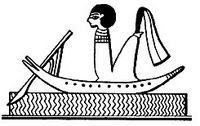Moore's book inspires art installation in Orlando
The Mennello Museum of American Art in Orlando, Florida hosts an exhibit inspired by Thomas Moore's book, The Re-Enchantment of Everyday Life. Scroll down this linked page to the museum's description for Trés Taylor's enCHANTment showing from 31 May 2013 to 5 January 2014:
"Contemporary self-taught artist Trés Taylor transforms the front gallery into an extraordinary meditation room. With enCHANTment, Taylor has created an installation of light and beauty that uses imagery from a monastic life to remind his audience of the joy and necessity of living a life of enchantment. Taylor was inspired by the book The Re-Enchantment of Everyday Life by Thomas Moore, in which the writer explains that 'an enchanted world is one that speaks to the soul, to the mysterious depths of the heart and imagination where we find value, love, and union with the world around us.'"





